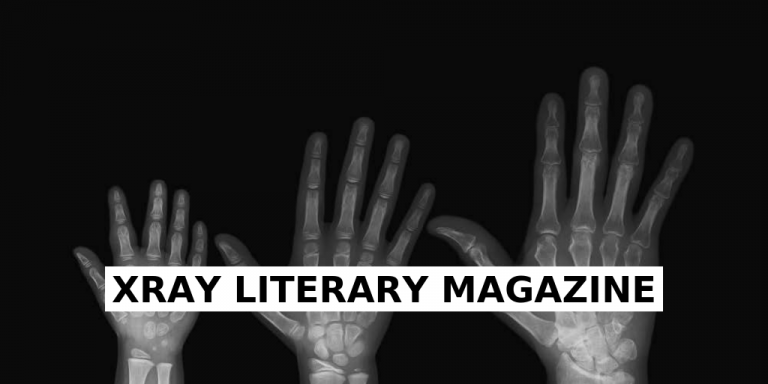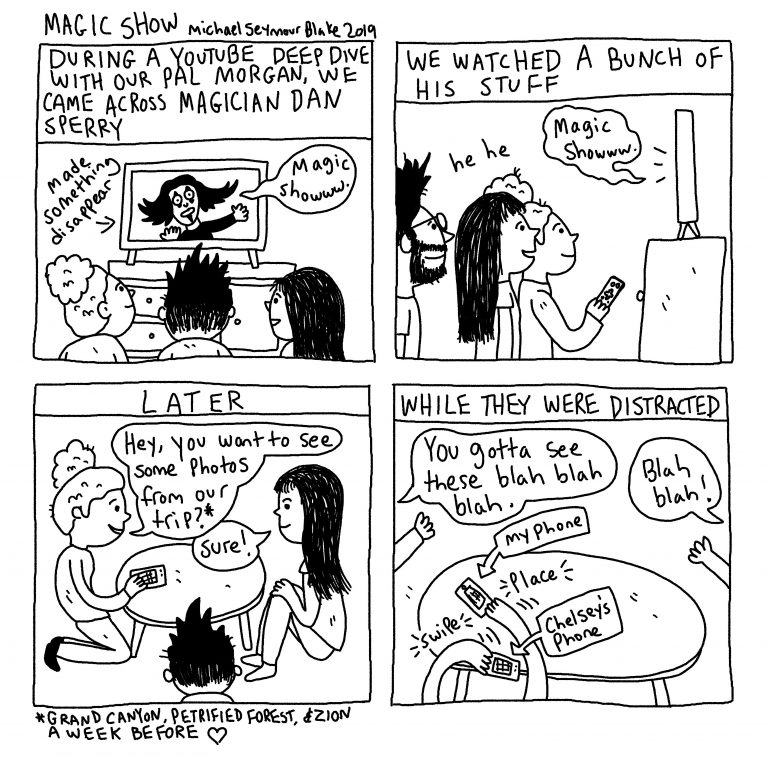
WHAT IT HAD IN ITS MOUTH by Arielle Burgdorf
What can make viewing it so memorable is the fact that as each day passes, the rock changes colour depending on the light and atmospheric conditions, and never remains the exact same permanent hue.
Red, the only color that stays with you. A massive red rock, rising out of a grassy field. Sun warming the stone, casting shadows in the crevices. The golden, reddish-brown fur of a wild dog peeking out from behind a bush. And the final red, rusty, dark splattered all over the white jumper. A baby, missing from the jumper. The same question, on yours and everyone else’s lips: where is the baby? Remember the days when you used to cover your eyes with your hands and whisper to her: Where’s baby? Then you’d remove your hands: There she is. A stupid game. But Azaria loved it, and you would do it for ages before she tired of seeing your face reappear between your fingers.
And now they ask again: Where’s baby? The question is always the same. The problem, is that everyone has a different answer.
This is not a story about dingoes, no matter what anyone tells you. It is not even a story about Australia, or media circuses. It’s a story about mothers, and how we punish them.
*
For years, you prayed for a girl. You loved your boys, but you wanted another kind of love. And finally, she came into the world. You named her Azaria, meaning “helped by God.” You smiled and sang to her. Three children and a loving husband. You were, you thought, blessed.
You know the exact moment and place everything changed. August, 1980. Ayer’s Rock. The Anangu people call it Uluru, which doesn’t mean anything in particular. For them, it is a sacred site. The rock is not passive, but a living, breathing entity.
A family camping trip. Laughter. Like any old day, and then a night like no other. After that night, you would never sleep fully again.
BABY GIRL ‘STOLEN BY DINGO’
You remember fragments. You were walking with your son back to the tent. And then: red fur. A lean body, running off into impossible dark. In court, they will ask you: Did you see the dingo drag the baby out in its mouth? Did you see it’s jaws clasped around the head and neck? You don’t know. Where’s baby? You don’t know that, either.
What you do know, is that you have seen how dingos eat meat. How they ruthlessly strip back the skin as they go. You know, without a doubt, that it was possible for a ravenous wild animal to take warm flesh out of its protective shell, just the way a human would peel an orange. You know this, and so it’s what you tell the press, when they ask how it could have happened. This is your greatest mistake.
Cold. Calculating. Hard-faced bitch.
Nothing in your demeanor suggests maternal. What you want them to understand, is that this is maternal. The outback is harsh, filled with poisonous, deadly animals found nowhere else on earth. Every day is a struggle to survive. A mother has to be extremely tough, willing to kill. This is what the dingo knew. That a morsel of red muscle, bone, and fat would sustain her and her young. Salt in her mouth. A minute’s relief, from a hunger that never subsides.
No one wants to see your stoic acceptance of nature. They want to see you cry. Tears, confirming your humanity. But you cannot help them. You have just lost your baby daughter. You have no more tears.
MOTHER SUSPECTED OF MURDER
You will not believe the atrocities they decide you are capable of. They accuse you of slitting her throat with nail scissors, decapitating her, stuffing her body into a camera bag, performing infant sacrifice for a religious cult. Too much blood, that’s the problem. When a dingo breaks a baby’s neck, it wouldn’t have produced that much blood. And we found no dingo saliva on the jumper, they tell you. The saliva must be on the matinee jacket, you tell them. She was wearing a white matinee jacket, with pale lemon edging. Really? That’s the first we’re hearing of this jacket.
*
The men on the jury take some convincing, but the women? The women vote you guilty immediately. The nation agrees: by 1984, 76% of Australians think you killed her. This is the price of telling a story too strange, too unique to be true.
Up until now, a dingo has never killed a human. But there were signs. A three year old girl dragged out of a car by a dingo, a few weeks before Azaria went missing. The dingoes were getting hungrier, and bolder. There will be many more children killed, or nearly killed by dingoes in the years to come. You will try and warn them, but they are not ready to hear what you have to say.
The jury chooses to believe the expertise of a dingo expert from London.
Exactly how many dingoes are there in London? you laugh bitterly. No one appreciates your anger. The women glare at you from the jury bench with a stare meaning, She has no right to call herself a mother.
Somewhere, there’s a dingo with a mouthful of blood, grinning.
*
No one ever gives a satisfactory explanation of why you want to kill your baby daughter so much. There doesn’t have to be a reason. A baby is gone, and you are the baby’s mother. That is enough. If you didn’t kill her outright, you killed her through negligence. From every angle, her death remains your fault. This is how we crucify mothers.
*
There is one group that believes your story. The Anagu people who know and respect the desert, who are aware of what the dingo is capable of. They are the people to whom this place rightfully belongs. The Anagu tracker was the one who found the jumper, who followed the footprints to the dingo lair. But he is not allowed to testify. We can’t get the right interpreters is the official police line. Besides, they’re all drunks.
In the movie version of your life, the police show up to shoot the Anagu’s dogs until Meryl Streep calmly assures them that none of the dogs look anything like a dingo. There is too much said in the silence. You can feel the tension tighten like a noose in those few minutes of celluloid, the entire weight of history playing out in the faces of everyone on screen.
*
You are sentenced to life in prison with hard labor. It feels like you are punished for being punished. Your husband is also declared guilty of murder, but allowed to remain free in order to raise your two boys. This makes very little sense to you. They are saying: he helped you murder, decapitate, and hide the corpse of your infant daughter, but he is fit to raise these children. The father’s crimes are forgivable. But a mother is beyond redemption. A mother should weep more, a mother should’ve protected her child.
And on this, you agree with the press.
A mother should’ve protected her child. But you do not need their help being punished for that.
*
There is something you have kept from them. Another baby girl, growing inside you. She will never be Azaria, but she will be enough to save you from madness. You would kill for this one, like all the others.
Another red: an opening. Kahlia. When she is born, in jail, they will allow you one hour with her. One hour to hold her, to touch her skin, to apologize to her for this brutal world that you’ve brought her into. Then she’s gone, and you are alone once more, in the wilderness.
When she is gone, you will cry, but no one will see it.
*
Because you have no other choice, you continue serving a sentence for a crime you didn’t commit. At this point, it doesn’t matter whether you did anything or not. You’ve lost all sense of true and real. There never was a baby you want to tell the jury. The dingo didn’t have anything in its mouth. There never was a dingo. Just me, out there in the desert.
*
One day, a jogger at Ayer’s Rock will come upon a white matinee jacket with pale lemon edging, lying not far from a dingo lair.
*
Where’s baby? Six years later, you don’t have answers. Sometimes, there aren’t any answers.
Regardless, the matinee jacket buys your freedom. You are told to be grateful. You are “free” from prison, you name is “cleared.”
But you know these are not accurate terms. You are never free, nothing has become clear. For the rest of your life, you will carry this inside your chest. You don’t know it yet, but your marriage is already over. Strangers, to this day, are convinced of your guilt. Girls call the tabloids, claiming to be your long-lost daughter. I’m Azaria they say. Pulling back their ponytails, trying to show you the twin scars on the sides of their heads. For years, the cause of death on Azaria’s birth certificate will read “unknown,” suspicion lurking. Your life boils down to a national punchline, a quip, a graphic to sell T-shirts. You will go down in history as the woman who cried dingo.
You are alive, but you have not survived this ordeal. You feel the jaws clamped like a vice around your skull, canines sinking in. You stare down the deep red throat into nothingness.
Then the light shifts, and you realize you are alone again. A solitary figure in the desert with a giant rock, and a baby with no body.

